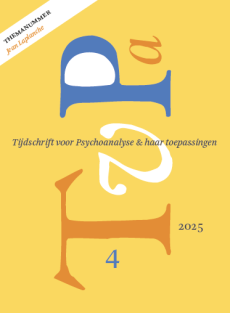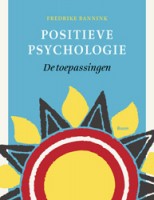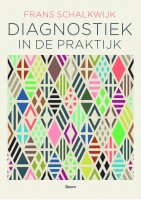Transference Focused Psychotherapy en Mentalization Based Treatment: broer en zus?
Summary
Transference Focused Psychotherapy and Mentalization Based Treatment: brother and sister?
In the past few years two methods or a psychoanalytical treatment for borderline patients have been developed: Transference-Focused Therapy and Mentalization-Based Treatment. This article explores the similarities and differences between them, with a special focus on how the different theories lead to different interventions in clinical practice. TFP takes the central problem to be the disorder in object relations, while MBT focuses on the self-as-agens. Further differences concern notions of the role of aggression, the presence of mental representations and the position of the therapist. Interventions formulated by therapists of both frames of reference in response to some therapy fragments prove to differ substantially.
Both theories share a desire to develop a psychoanalytical technique suitable for borderline patients, and both stress the central importance of the handling of the transference and of working in the here-and-now, as well as the necessity of effect research.
Key words:
borderline personality organisation, interventions, MBT, mentalization, TFP
Literatuur
- Bateman, A. & Fonagy, P. (2004). Psychotherapy for Borderline Personality Disorder; Mentalization-based treatment. Oxford: Oxford University Press.
- Deben-Mager, M. (2003). Psychoanalytische ontwikkelingstherapie voor volwassenen. In R.A.M. Erdman e.a. (red.), Psychoanalytische psychotherapie en nieuwe perspectieven (p. 19-29). Assen: Van Gorcum.
- Deben-Mager, M. & Verheugt-Pleiter, A. (2004). Enkele toepassingen van de gehechtheidstheorie op de psychoanalytische praktijk. Tijdschrift voor Psychoanalyse, 10, 18-31.
- Fonagy, P., Gergely, G., Jurist, E.L. & Target, M. (2002). Affect regulation, mentalization and the development of the self. New York: Other Press.
- Fonagy, P. & Target, M. (1996). Playing with reality: I. Theory of mind and the normal development of psychic reality. International Journal of Psychoanalysis, 77, 217-233.
- Gergely, G. & Watson, J. (1996). The social biofeedback model of parental affect mirroring. International Journal of Psychoanalysis, 77, 1181-1212.
- Hummelen, J.W. (1997). Splitsing; het psychoanalytische concept en de mogelijkheid het afweermechanisme splitsing betrouwbaar vast te stellen. Dissertatie. Utrecht: De Tijdstroom.
- Kernberg, O. (2004). Aggressivity, narcissism, and self-destructiveness in the psychotherapeutic relationship. New Haven: Yale University Press.
- Lyons-Ruth, K. & Jacobovitz, D. (1999). Attachment disorganisation: unresolved loss, relational violence, and lapses in behavioral and attentional strategies. In J. Cassidy & P.R. Shaver (red.), Handbook of attachment; theory, research, and clinical applications (p. 520-554). New York: The Guildford Press.
- Target, M. & Fonagy, P. (1996). Playing with Reality II. The Development of Psychic Reality from a Theoretical Perspective. International Journal of Psychoanalysis, 77, 459-479.
- Yeomans, F.E., Clarkin, J.F. & Kernberg, O.F. (2002). A primer of transference focused psychotherapy for the borderline patient. New Jersey/Londen: Jason Aronson inc.
- Wijts, P.M.H., Kooiman, C.G. & Swaab, L.F. (2003). Transference Focused Psychotherapy; Een op de overdracht gerichte psychoanalytische psychotherapie voor borderline patiënten. Tijdschrift voor Psychotherapie, 29, 140-156.
 © 2009-2026 Uitgeverij Boom Amsterdam
© 2009-2026 Uitgeverij Boom Amsterdam
ISSN 1382-516x
De artikelen uit de (online)tijdschriften van Uitgeverij Boom zijn auteursrechtelijk beschermd. U kunt er natuurlijk uit citeren (voorzien van een bronvermelding) maar voor reproductie in welke vorm dan ook moet toestemming aan de uitgever worden gevraagd:
Behoudens de in of krachtens de Auteurswet van 1912 gestelde uitzonderingen mag niets uit deze uitgave worden verveelvoudigd, opgeslagen in een geautomatiseerd gegevensbestand, of openbaar gemaakt, in enige vorm of op enige wijze, hetzij elektronisch, mechanisch door fotokopieën, opnamen of enig andere manier, zonder voorafgaande schriftelijke toestemming van de uitgever.
Voor zover het maken van kopieën uit deze uitgave is toegestaan op grond van artikelen 16h t/m 16m Auteurswet 1912 jo. Besluit van 27 november 2002, Stb 575, dient men de daarvoor wettelijk verschuldigde vergoeding te voldoen aan de Stichting Reprorecht te Hoofddorp (postbus 3060, 2130 KB, www.reprorecht.nl) of contact op te nemen met de uitgever voor het treffen van een rechtstreekse regeling in de zin van art. 16l, vijfde lid, Auteurswet 1912.
Voor het overnemen van gedeelte(n) uit deze uitgave in bloemlezingen, readers en andere compilatiewerken (artikel 16, Auteurswet 1912) kan men zich wenden tot de Stichting PRO (Stichting Publicatie- en Reproductierechten, postbus 3060, 2130 KB Hoofddorp, www.cedar.nl/pro).
No part of this book may be reproduced in any way whatsoever without the written permission of the publisher.
Nieuwsbrief Boom Psychologie
Meld u nu aan en ontvang maandelijks de Boom Psychologie nieuwsbrief met aantrekkelijke aanbiedingen en de nieuwe uitgaven.
Aanmelden


